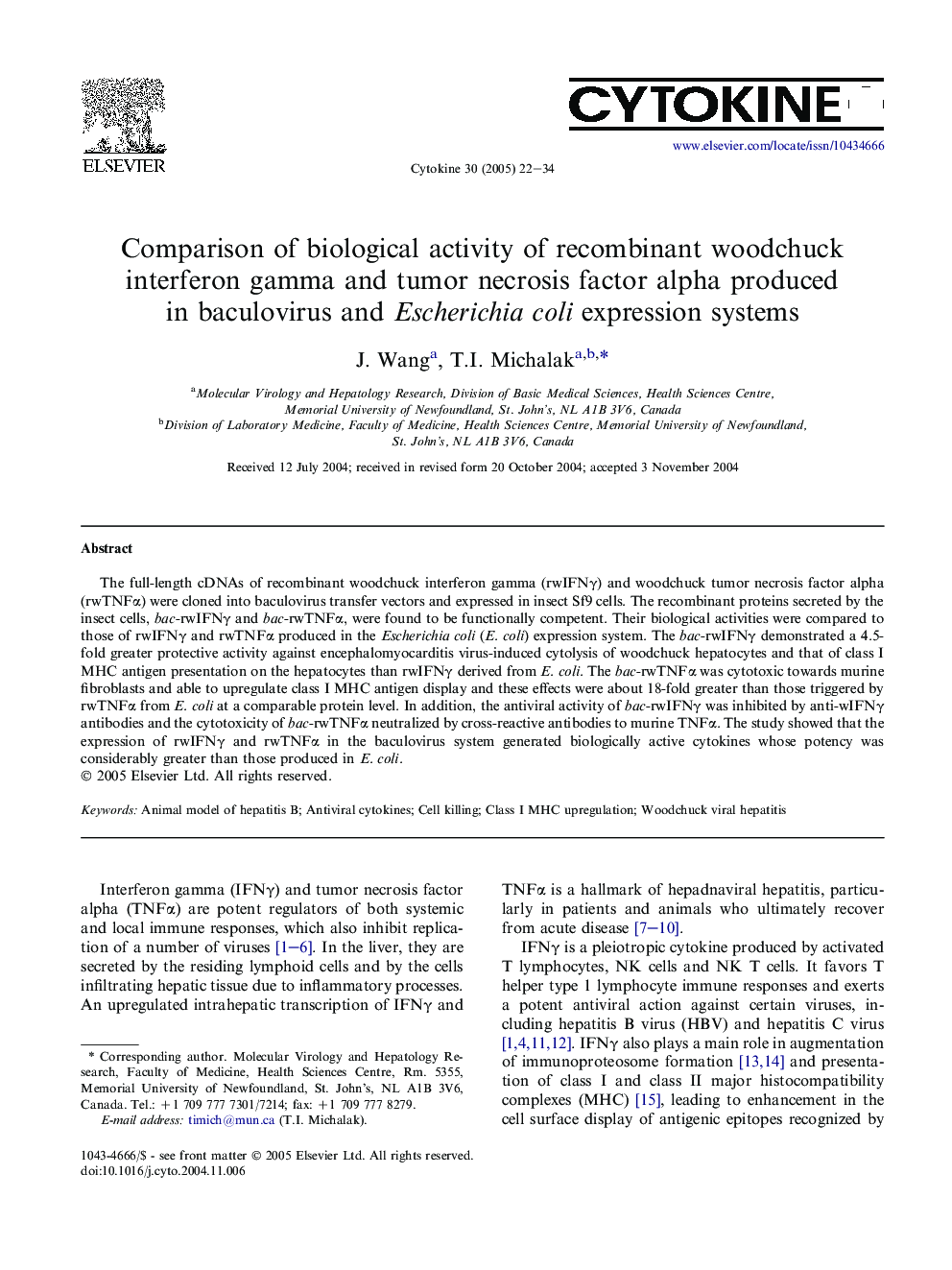| Article ID | Journal | Published Year | Pages | File Type |
|---|---|---|---|---|
| 9110979 | Cytokine | 2005 | 13 Pages |
Abstract
The full-length cDNAs of recombinant woodchuck interferon gamma (rwIFNγ) and woodchuck tumor necrosis factor alpha (rwTNFα) were cloned into baculovirus transfer vectors and expressed in insect Sf9 cells. The recombinant proteins secreted by the insect cells, bac-rwIFNγ and bac-rwTNFα, were found to be functionally competent. Their biological activities were compared to those of rwIFNγ and rwTNFα produced in the Escherichia coli (E. coli) expression system. The bac-rwIFNγ demonstrated a 4.5-fold greater protective activity against encephalomyocarditis virus-induced cytolysis of woodchuck hepatocytes and that of class I MHC antigen presentation on the hepatocytes than rwIFNγ derived from E. coli. The bac-rwTNFα was cytotoxic towards murine fibroblasts and able to upregulate class I MHC antigen display and these effects were about 18-fold greater than those triggered by rwTNFα from E. coli at a comparable protein level. In addition, the antiviral activity of bac-rwIFNγ was inhibited by anti-wIFNγ antibodies and the cytotoxicity of bac-rwTNFα neutralized by cross-reactive antibodies to murine TNFα. The study showed that the expression of rwIFNγ and rwTNFα in the baculovirus system generated biologically active cytokines whose potency was considerably greater than those produced in E. coli.
Keywords
Related Topics
Life Sciences
Biochemistry, Genetics and Molecular Biology
Endocrinology
Authors
J. Wang, T.I. Michalak,
